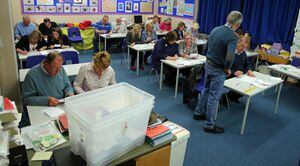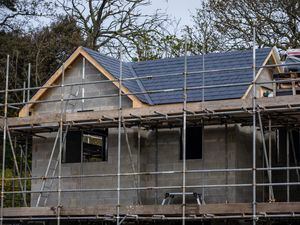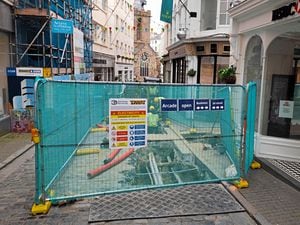Electronic vote counting one option for first IWV poll
WITH JUST over 10 months to go until the first island-wide election, the committee responsible for organising it is confident everything will be ready on time.

Last year’s referendum went for island-wide voting, and the States’ Assembly & Constitution Committee is charged with making it happen on 17 June 2020.
E-counting machines, ballot papers, advance polling, and a combined manifesto booklet are among the issues being investigated, and committee president Deputy Neil Inder is not too fazed about the size of the challenge.
‘We’re not building a harbour or a school, we just need to deliver an election,’ he said.
The committee is looking into renting e-counting machines which would be able to scan the ballot papers.
A voter would still fill out a ballot paper manually, but then special software would read what the voter had marked on their paper.
There are approximately 32,000 people registered to vote, and theoretically if each of these people used all of their 38 votes, it would mean there would be 1.2 million votes to count.
A so-called ‘e-count’ should reduce the number of staff required, the potential for human error, and the length of time to declare the vote.
In the 2016 election, there were 81 candidates for the 38 seats, and it is anticipated that next year there will be a similar number of candidates standing.
Investigations are continuing into what size the ballot paper should be. A3 size has been mooted, but all options are under consideration.
The committee is keen to offer a broad range of options of how to vote, and part of that will be postal voting and an advance polling station, but the details are being examined as to how the electoral roll can be reconciled after those options close.
On the issue of manifestos, the committee has had a big response to its questionnaire asking how voters would like to receive information from candidates.
More than 1,000 people have completed the questionnaire which asks about a combined manifesto booklet, the creation of online video and audio for candidates to broadcast their messages, and whether voters would like to be able to submit online questions to the candidates.
That consultation closes on 14 August and the information will be collated.
Sacc is the only States committee which allows the media to sit in and listen to its meetings, and at the most recent one it discussed the policy letter which will go before the States in September.
This will look at the spending limits to be imposed on candidates.
In 2016, candidates were allowed to spend £2,300, but that sum is expected to be higher next year because candidates will want to reach the whole island instead of just their district.
The idea of an expenditure limit is so that rich candidates cannot spend excessively and disadvantage others.
A new electoral roll is put together before every election to make sure that people’s details are up to date, and that people who have died or moved away are no longer signed up to it.
There will be a public campaign, probably between November and April, asking people to sign up to the new roll. You must sign up for it if you want to vote in 2020.
. The questionnaire on manifestos can be completed online at www.gov.gg/election2020consult





